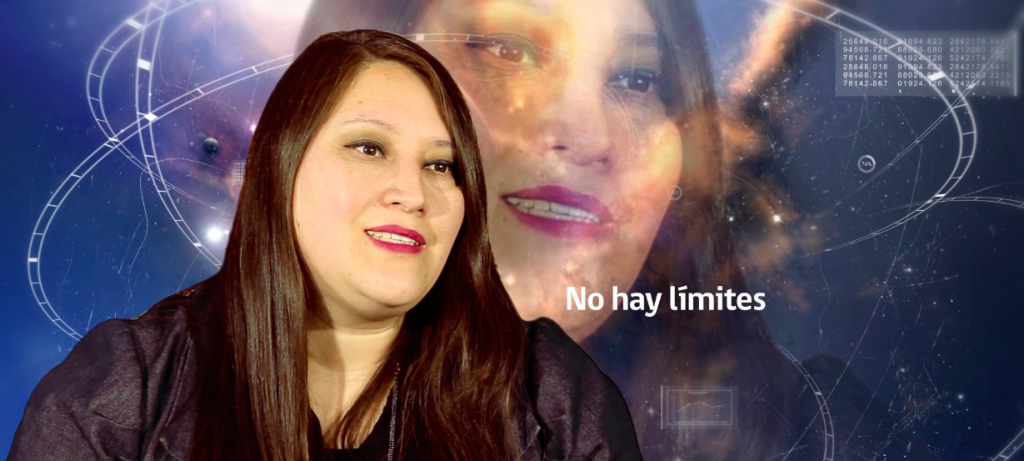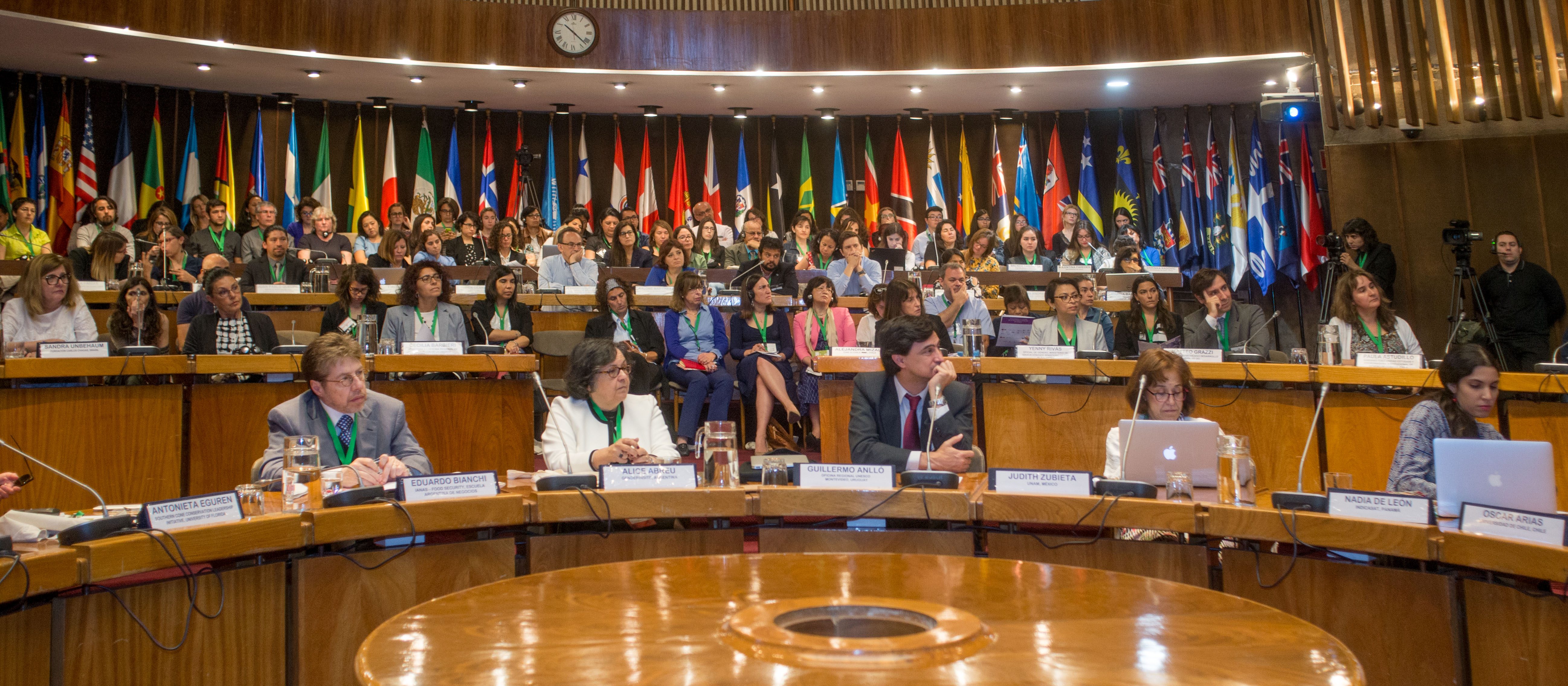- During all her career, the teacher of Liceo 1 has supported groups of girls to develop scientific projects in different areas of biology and technology. Roxana talks about her experience forming critical citizens and capable of being a contribution to the society.
To draw was what awakened in Roxana Nahuelcura the interest in biology. Since she was at Liceo 1 of Girls, she enjoyed drawing models that she saw in books, and noticed that she liked to explain the subject through these sketches. That was how, years later, she decided to study Pedagogy in Biology.
“When I started teaching at the same place where I studied, I had high expectations of being a contribution to the school, beyond the content delivered in the classroom. My purpose was to make a real contribution from another perspective“, Roxana explains. That is why she decided to focus on support her students in scientific initiatives.
One of the first student proposals that Roxana advised received a prize to travel to Antarctica, in a contest organised by INACH (Chilean Antarctic Institution). “We presented a bibliographic project related to the penguins. The girls wanted to relate it to the postulates of Darwin’s natural selection and the project was the winner. We visited the place and it was unforgettable”, she recalls.
Years later, the project went through an experimental stage. “The girls began to work for the first time in a laboratory, on an idea about extremophile microorganisms which had very good results, with the support of the professor José Manuel Pérez of the Andrés Bello University, thanks to the Explora program. The girls participated in Junior del Agua contest and they win the first place to go to Sweden”, she says with proud.
Regarding the barriers that girls can face when researching in science, Roxana believes that the fundamental thing is trust in themselves and the role of teachers in it. “Within the school, the girls do not have limits if teachers work to give them confidence and enough tools so they can reach their maximum potential. They develop themselves and come to the university, perhaps at more traditional careers where they are the only women in the room, but feel capable of doing anything “, explains the teacher.
One of the most successful technology projects of Roxana Nahuelcura and her students was a special suit with sensors for blind people. “When they went to Washington everyone was surprised that a technology project was developed by girls, even in school, and that the teacher who advised them was a woman too. The researchers asked them ‘who helped you or advised you? surely your dad or your brother’, and they got a lot of attention that they were self-taught, that they started looking for programming information and, finally, they came to this prototype”, Roxana says.
What encourages you to support girls to be scientists?
My mission, more than to coach scientist girls, is to develop citizens who are critical and capable of being a contribution to society from any topic. In the projects that I have supported, we have had humanistic and scientific girls. For example, one them is studying journalism and she wants to dedicate to scientific journalism. She will be empowered because she participated in science projects within the school.
How do you fight is the fact that women often have fewer expectations than men do in the development of their scientific careers?
I feel that it is not that expectations are lower. Girls have high expectations, but they get frustrated very fast and, in front of that, you have to support them and show them other ways to make things work. That is how they gain confidence in themselves and become empowered.










